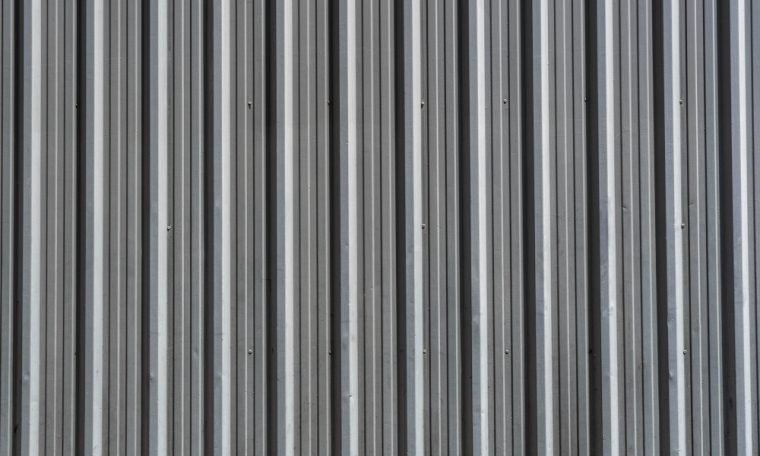
Insulated wall panels and roof panels contribute to the complete transformation of your home and outdoor living space. Also, known as sandwich panels, these insulation systems sustain a comfortable living environment inside your premises, while reducing your home’s energy bills. Not only homes, but sandwich insulation panels are also great to embed in commercial buildings as it acts as a noise cancellation, creating a peaceful work ambiance.
Needless to mention, the sandwich panel price might be quite high, but your investment will pay off in the long run! Through this write-up, we are going to walk you through different sandwich panels, their types, and their benefits. With no more delay, let’s dive deep into the topic!
Types of Insulated Wall Panels and Roof Panels
In case you are embarking on a new residential or commercial construction project, check out the following insulation choices and ask your construction contractor to embed these insulation options during the construction project:
1. Polyurethane (PU) Insulated Panels
Polyurethane insulated wall panels equip your home or commercial building with a nominal R-value of thickness. For walls, these panels are constructed with a thickness of 3.5 inches. Renowned for low moisture penetrability, fire resistance capability, and excellent insulation, this specific sandwich panel price is way more than the alternative options, but worth investing in.
2. Expanded Polystyrene (EPS) Panels
When it comes to preparing insulated wall panels, the EPS panels can be a matchless choice. EPS panels have a high R-value that stays intact even after several years of installation. That means, the insulation system is highly capable of averting heat transfer and maintaining a cozy and comfortable environment within. In fact, the EPS panels are highly water-resistant, thus if you plan to construct a building in a humid area, these insulated panels are your best bet!
3. Mineral wool Panels
Mineral wool panels are a pure blend of synthetic or natural mineral fibers and comparatively have a high R-value. Thus, it can promise to offer adequate thermal insulation to your newly constructed building. Additionally, these panels work amazingly as noise cancellation, preventing loud outdoor noises from infiltrating inside your building.
4. Vacuum Insulated Panels (VIPs)
In case, your new home or office is being constructed in a limited space, the VIP insulated wall panels can be your safest bet! Besides possessing a high R-value, it prevents moisture infiltration, supporting the structural integrity of your building year after year.
In fact, the VIP insulation technology offers ten times better proven thermal efficiency compared to its alternative options. Most importantly, the super sleek design of the insulation system does not ruin the look or feel of your building and, at the same time, saves on energy bills efficiently!
5. Extruded Polystyrene (XPS) Panels
Are you planning to engrave a pool in the outdoor space of your home? Then, you should definitely consider installing the XPS panels. Renowned for its moisture resistance power, it safeguards the integrity of your building, preventing the risks of mold infestation and moisture damage. Additionally, they have a higher R-value that stays untouched for a longer span.
6. Steel Insulated Panels (SIPs)
Other than preparing insulated wall panels and roof panels, SIPs are widely used for insulating floors. Moreover, besides the construction industry, SIPs mark their application in oil fields and HVAC equipment like freezer coolers. Crafted by sandwiching foam plastic between rigid structural metal elements or skins, SIPs are durable, work excellently as both thermal and sound insulation, and are easy to install.
7. Metal Insulated Panels
The thin and lightweight Metal Insulated Panels come with countless advantages. First of all, they are flexible, so professionals can easily mold them in their desired shape. Secondly, metal panels come in a variety of colors, giving you full freedom to create a unique insulation system for your property. These panels offer high thermal insulation, possess moisture and fire resistance properties, and are eco-friendly and easy to install.
8. Cork Panels
If you reside in damp prone or humid areas, you can consider using cork panels to insulate the walls and roofing system of your property. These panels have excellent moisture-proofing ability and R-value, so you keep the threats of water or moisture damage and high energy bills at bay.
However, in comparison with all the insulation systems we mentioned above, this one has an average lifespan. Also, cork panel insulation systems require high maintenance, which can again drain your pocket in the long run.
Wrapping up
When you pick the right insulated wall panels and roof panels, you add a shield to your building. Quality insulation systems not only offer your home thermal protection but make it energy efficient. In fact, your building stands rigid against all external threats! Speak to your construction contractor, evaluate your choices, and choose the best sandwich insulation panels that fit your budget, project, and insulation requirements efficiently.



